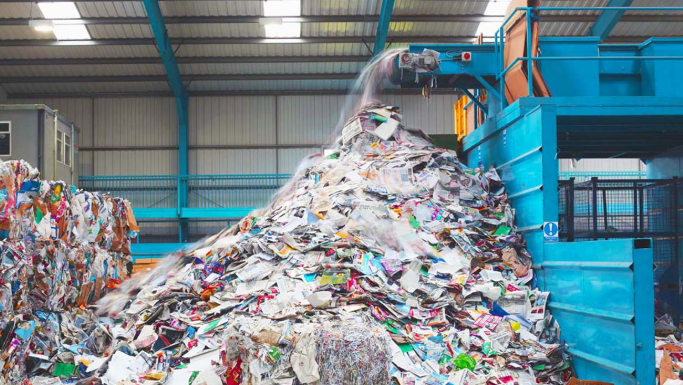Effective industrial waste management is crucial in protecting the environment by reducing pollution, conserving resources, and mitigating health risks. Industrial operations generate vast amounts of waste, including hazardous materials, chemical byproducts, and non-recyclable components. Without proper waste management strategies, these byproducts can cause severe environmental damage, impacting ecosystems and human health. This article highlights the significance of managing industrial waste and explores sustainable practices that promote environmental protection.
What Is Industrial Waste Management?
Industrial waste management refers to the systematic collection, treatment, and disposal of waste produced by industrial activities. It involves implementing strategies to handle different types of waste, including solid, liquid, and hazardous materials, to minimize their environmental impact. Proper waste management ensures compliance with environmental regulations while promoting sustainability through waste reduction, recycling, and eco-friendly disposal methods.
Types of Industrial Waste
Industrial waste can be broadly classified into:
- Solid Waste: This includes packaging materials, scrap metals, and leftover raw materials from production processes.
- Liquid Waste: Industrial facilities often produce wastewater contaminated with chemicals, oils, and toxins.
- Hazardous Waste: Chemical byproducts, solvents, and other dangerous substances fall into this category due to their potential harm to the environment and human health.
Why Is Industrial Waste Management Important?
Managing industrial waste is essential for several reasons, including:
1. Pollution Prevention
Unmanaged industrial waste can contaminate air, water, and soil, leading to widespread pollution. Toxic chemicals released into the environment can cause long-term damage to ecosystems, reducing biodiversity and threatening wildlife.
2. Resource Conservation
Recycling and repurposing industrial byproducts help conserve natural resources by reducing the need for raw materials. This is especially important in industries like construction and manufacturing, where large amounts of materials are consumed.
3. Health and Safety
Exposure to hazardous industrial waste can cause serious health problems, including respiratory issues, skin conditions, and even life-threatening illnesses. Proper waste management reduces the risk of accidents and health hazards for workers and surrounding communities.
4. Legal Compliance
Government regulations mandate that industries follow waste management protocols to prevent environmental damage. Non-compliance can result in hefty fines, legal action, and damage to a company’s reputation.
Sustainable Waste Management Practices
Sustainability is at the heart of modern industrial waste management practices. Some effective strategies include:
1. Waste Segregation and Recycling
Industries can adopt recycling sorting systems to separate different types of waste for recycling. This includes metals, plastics, and paper that can be processed and reused.
2. Glass Recycling
Glass recycling is another eco-friendly practice that reduces energy consumption and minimizes landfill waste. Recycling glass helps conserve natural resources such as sand and reduces greenhouse gas emissions.
3. Energy Recovery
Some industries convert waste into energy through processes like incineration and gasification. These methods reduce waste volume while generating electricity or heat, promoting a circular economy.
4. Eco-Friendly Disposal
Hazardous waste should be disposed of using environmentally sound methods such as secure landfills and chemical treatment processes. This prevents harmful chemicals from leaching into the environment.
Benefits of Industrial Waste Management
Adopting a robust waste management system benefits industries, communities, and the environment in several ways:
- Environmental Conservation: Reducing waste and pollution helps maintain ecological balance and protect natural habitats.
- Cost Savings: Recycling and reusing materials can lower operational costs by reducing the need for new raw materials.
- Improved Public Image: Companies implementing eco-friendly waste management practices often enjoy a better reputation and increased customer loyalty.
Conclusion
Industrial waste management is not just a regulatory requirement but a responsibility that businesses must embrace to ensure environmental sustainability. Implementing effective waste management strategies, such as recycling sorting systems and promoting glass recycling, can significantly reduce pollution and conserve valuable resources. By managing waste responsibly, industries can safeguard the planet while fostering long-term economic growth and social well-being.





